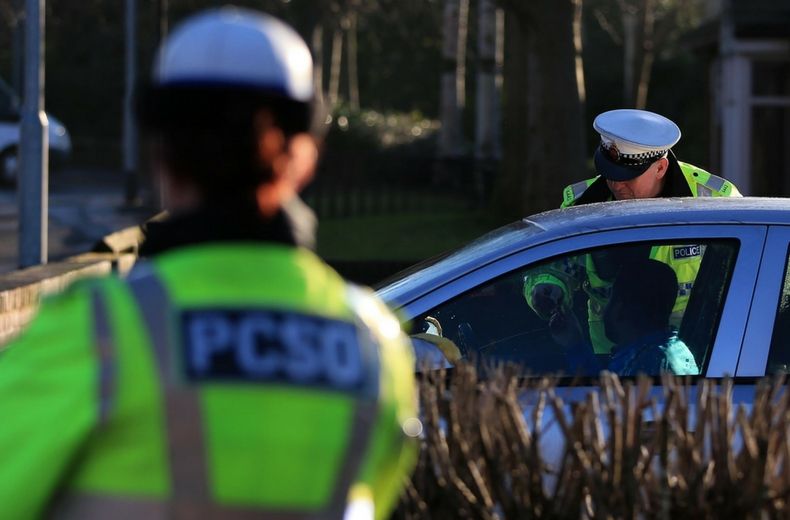Some offences are more serious than others, with police able to hand out on-the-spot fines for lesser examples, while the most serious could result in a prison sentence.
It’s therefore important to understand the driving laws – and the punishments applicable to those who break them.
Type of offence
Most offences come under either the category of minor offence or major offence, each type being dealt with very differently.
- Minor offences
Most of the driving offences that can be treated with a FPN are classed as ‘minor’. These include low-level speeding, driving without an MOT and using a handheld phone behind the wheel.
All minor offences must be declared to your insurance company. Depending on the offence, it may affect your premium at renewal time, although most tend to allow one or two speeding convictions before putting up prices.
- Major offences
The most serious of offences, including driving while under the influence of alcohol or dangerous driving, will be dealt with at magistrates’ court. It’s advised that you seek legal advice from a solicitor before going to court, especially if you’re intending to plead ‘not guilty’.
When you’re in court, magistrates will consider your driving record, the circumstances surrounding the event and any mitigating circumstances you have provided. If they impose a fine, it might be dependent on your income and ability to pay off the penalty.
For some offences – generally those which won’t result in a ban – you don’t need to attend court on the day and you can provide your plea by letter.

RAC Breakdown Cover from £7 a month*
*£7 a month for new single vehicle Basic cover. Comparison based on www.theaa.com closest equivalent cover as at 19/04/24.

Speeding
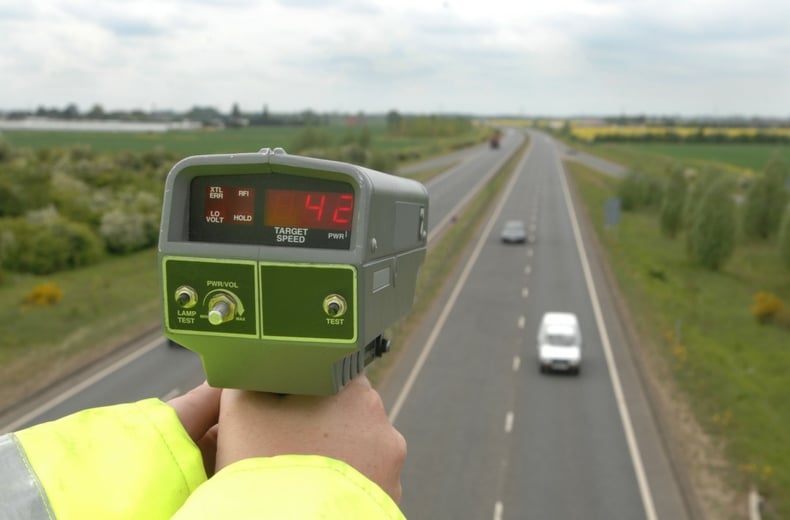
Speeding is the most common driving offence on UK roads.
Doing so will usually earn you a £100 fine and three penalty points on your licence.
Guidelines suggest drivers are only prosecuted when exceeding the speed limit by 10% plus 2mph, but police aren’t required to stick to this rigidly.
Never assume that you have this 10% plus 2 leeway; for safety you should never exceed the speed limit.
If you’re caught exceeding the speed limit even by a small margin, you may be offered a speed awareness course.
If you’re caught at more than 45% over the speed limit, the case is likely to be passed to magistrates’ court, where you could face a hefty fine or a driving ban.
Read full speeding fines guide
Using your mobile phone behind the wheel
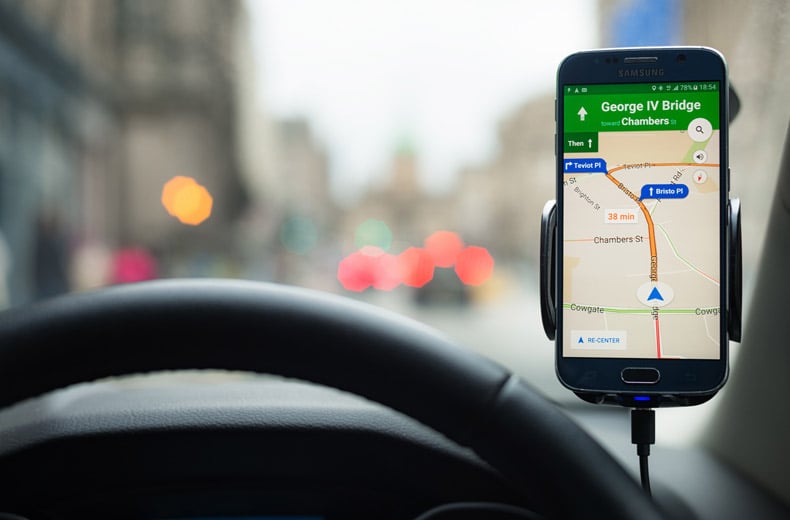
Police are cracking down on mobile phone use behind the wheel, with £200 roadside fines and six penalty points handed out from 1 March 2017.
You could also go to court, which might lead to a driving ban or a fine of up to £1,000.
This includes handheld mobile phone use while sitting in traffic.
However, it is legal to use a mobile phone connected to an approved ‘hands-free’ device but we would recommend that you avoid making calls at all so that you remain alert and aware on the roads.
Read full mobile phones law page
Careless driving (driving without due care and attention)
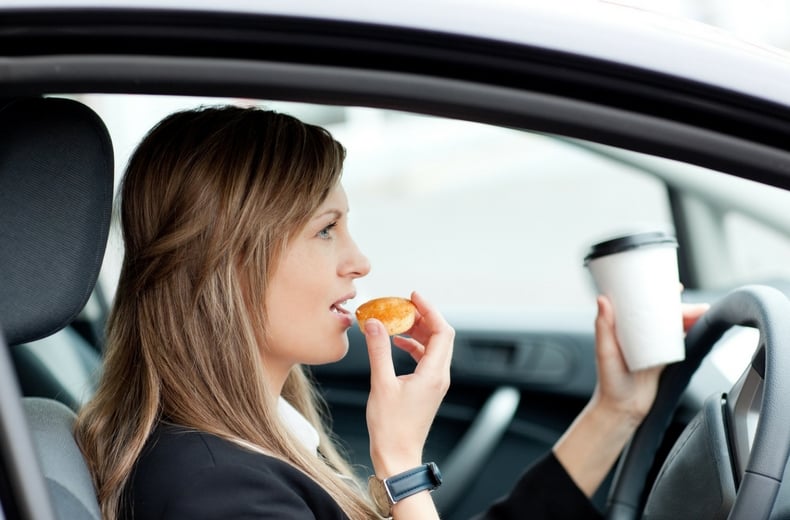
Careless driving, also known as driving without due care and attention, covers a number of offences, from showing poor lane discipline on the motorway to swerving while changing the radio station.
Police can now hand out on-the-spot £100 fines and three penalty points for the offence, while more serious cases go to court and could result in a fine of up to £2,500 and disqualification.
If you’re involved in a fatal crash and are found to be responsible for a momentary lack of concentration that led to the incident, you could be prosecuted for causing death by careless driving.
This could result in a driving ban, an unlimited fine, or a prison sentence of up to five years.
Read full careless driving guide
Dangerous driving
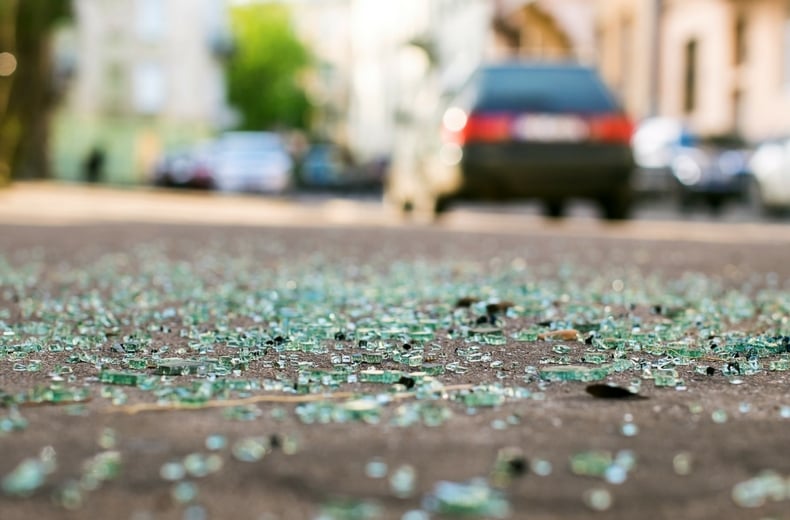
Dangerous driving is more serious than careless driving, and is classed as driving which “falls far below what would be expected of competent and careful driving, and it would be obvious to a competent and careful driver that driving in that way would be dangerous.”
It can include driving aggressively, overtaking in dangerous locations and racing other vehicles.
Dangerous driving offences will be dealt with by the Magistrates’ Court or Crown Court, depending on the seriousness.
If found guilty, you could be hit with an unlimited fine, a driving ban and up to 14 years in prison.
Want more useful content like this sent straight to your inbox?
Drink driving
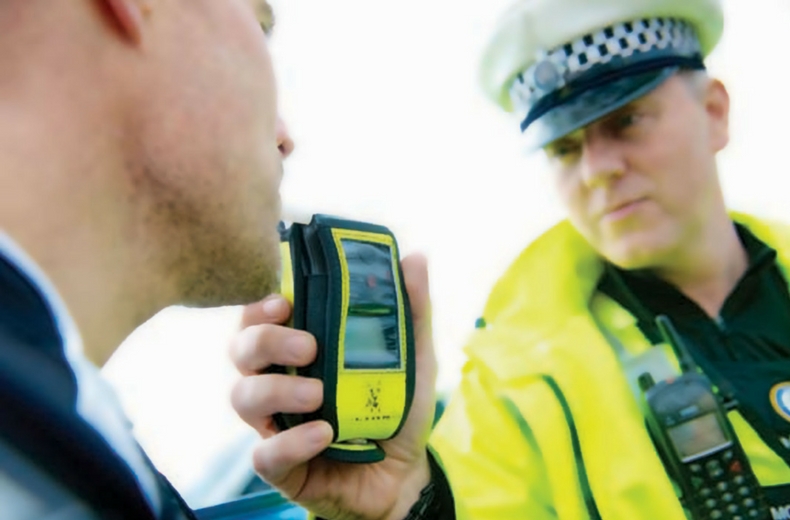
The legal alcohol limit for driving in England, Wales and Northern Ireland is 80 milligrammes per 100 millilitres of blood and 50 milligrams of alcohol per 100 milliliters of blood in Scotland.
The amount you can drink while remaining under this limit varies greatly depending on various factors, from your body size to how much you’ve had to eat.
It’s advised that you shouldn’t drink alcohol at all if you’re driving, and be cautious about driving the day after a night out.
Police can stop you at any time when you’re driving, and if they suspect you of being over the limit they’ll probably use a breathalyser to test the amount of alcohol in your breath.
If you fail this preliminary test, or fail to comply, you will then be arrested under suspicion of drink driving, and be taken to a police station to provide a more accurate evidential breath test.
If this shows you’re over the limit, you face a possible driving ban, an unlimited fine and up to six months imprisonment.
If you’re involved in a crash while over the limit, and you’re found to be responsible for another person’s death, you could be hit by 14 years in prison, an unlimited fine and a driving ban of at least two years.
You may also need to take an extended driving test to get your licence back.
Read full drink-driving limits guide
Drug driving
As with drink driving, police can carry out roadside drug tests if they suspect you of being unfit to drive due to legal or illegal drugs.
While many of us will assume we’re safe from being prosecuted for drug driving if we don’t take illegal drugs such as cannabis or cocaine, prescription medicines such as amphetamines and morphine can also affect your driving.
Penalties for drug driving include a driving ban of at least one year, an unlimited fine and six months in prison.
Like drink driving, you’ll get a criminal record and could face problems getting car insurance in the future or when seeking employment.
Driving without insurance
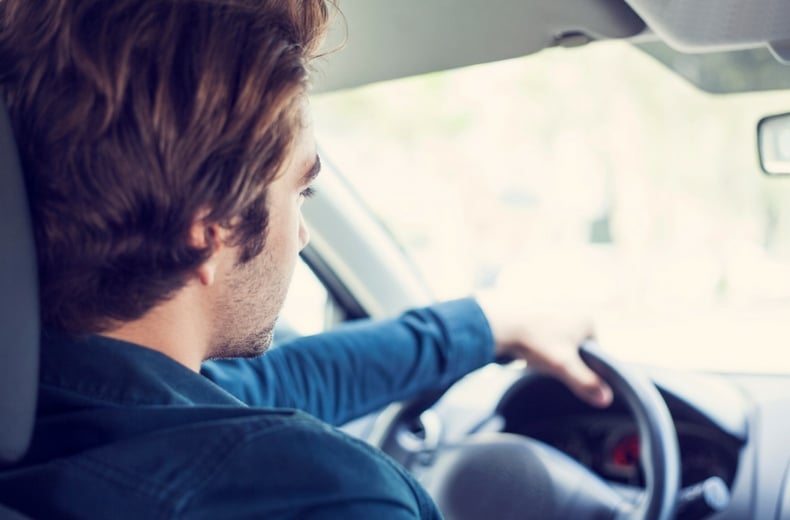
If you drive a vehicle without insurance on a public road, you risk it triggering a police ANPR (automatic number plate recognition) camera and being hit with a roadside penalty of £300 and six penalty points on your licence.
Police also have the powers to seize an uninsured vehicle.
Be careful, as the same punishments apply for any car you’re driving without the appropriate insurance – even if it’s insured in someone else’s name.
If the case goes to court, you could be hit with an unlimited fine and a driving ban.
Having the incorrect car seat for your child
UPDATED: Under new car seat laws you’re also risking a £500 fine if caught using an unsuitable or incorrectly fitted car seat.
5 Star Defaqto rated cover
RAC Comprehensive Car Insurance Plus has been given a 5 Star Rating by Defaqto. Get a quote online today.


Driving otherwise than in accordance with a licence
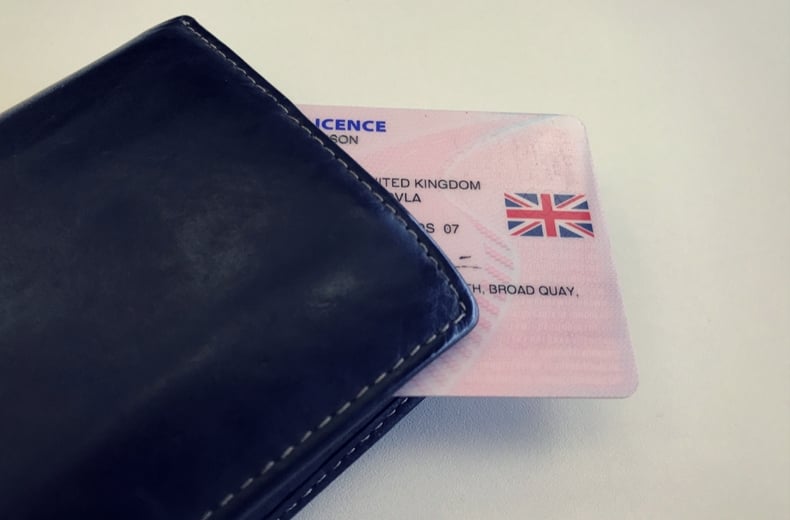
Driving otherwise than in accordance with a licence covers a myriad of offences – including driving while under-age, driving with a provisional licence without a supervisor and L-plates, and driving without a licence at all.
The punishment for doing so includes a fine of up to £1,000, up to six points on your licence and a possible disqualification.
Driving when disqualified
If you’re caught driving following a ban, the police will arrest you on the spot and a court will decide your fate.
Expect your disqualification to be extended as a minimum, along with a fine.
Understandably, the court may feel you’ve shown disrespect for the law and could decide to impose a prison sentence.
Driving without an MOT

The MOT test is a car’s yearly test of roadworthiness, and forgetting about it is easily done but could prove costly.
If a car doesn’t have a current MOT, it’ll flag up on a police car’s ANPR system, so expect to be pulled over sooner or later.
Generally, the punishment isn’t as harsh as other offences.
Usually you’ll be handed a £100 on-the-spot fine, and receive no penalty points.
If the case goes to court, it could result in a fine of up to £1,000.
The punishment will be more severe if the vehicle is found to be unroadworthy by the police.
You can be hit with a fine and points on your licence for each fault discovered – such as an illegal tyre or defective brakes, each of which could land you with a £100 fine and three points per fault.
If your car has four tyres below the 1.6mm legal tread-depth, you face a £400 fine and 12 penalty points (which could result in a driving ban).
This applies to any unroadworthy vehicle – even if it has a valid MOT.
Get 30 driving tips that will save you money
Running a car isn’t cheap, but there are some easy things you can do to keep your costs down. Get these tips and more useful driving articles sent straight to your inbox now.
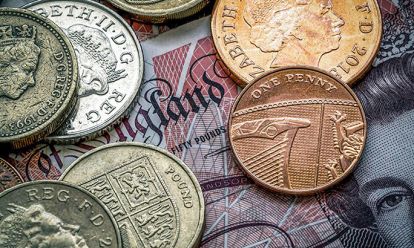

Fixed Penalty Notices
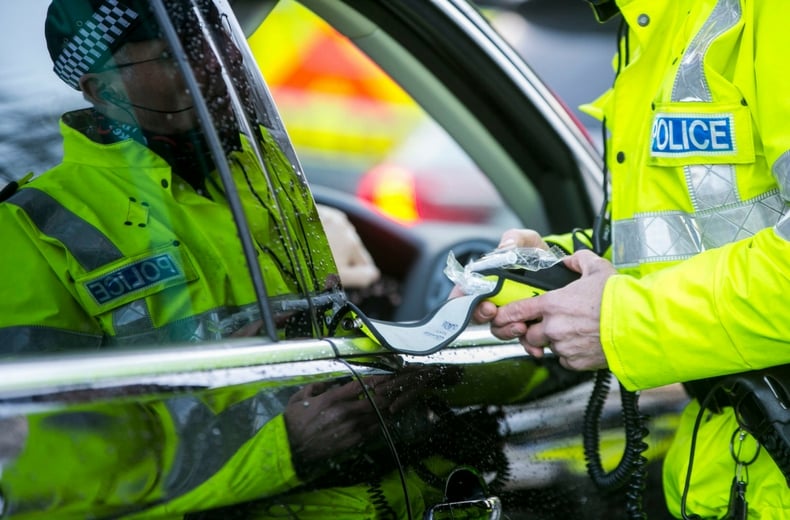
Many of these offences can be dealt with by a ‘Fixed Penalty Notice’ (FPN).
If you’ve been stopped by the police and they consider a FPN to be an appropriate punishment, they’ll offer you one, and you can decide whether to accept the fine (usually along with points) or reject it – in which case you’ll be summoned to appear in court.
Fixed Penalty Notices can be split into endorsable FPNs (with points) and non-endorsable FPNs (without points). These include:
£50 non-endorsable FPNs
These include stopping on the motorway hard shoulder, using the horn at night and cycling on the pavement.
£100 non-endorsable FPNs
Rarer, these include driving a vehicle without a valid MOT and failing to wear a seatbelt.
£100 endorsable FPNs
The most common type of Fixed Penalty Notice, this includes speeding, careless driving and driving on the hard shoulder.
£200 endorsable FPNs
These include using a hand-held mobile phone while driving – something that has recently had its penalty doubled to £200 and six penalty points.
£300 endorsable FPNs
The most expensive fixed penalty, this is reserved for drivers on the road without insurance.
A full list of Fixed Penalty Notice offences can be found here.
Want to protect yourself against any financial losses after an accident? Get legal expenses insurance from just £15 a year with RAC Legal Care Plus.
Driving offences FAQ
- How long does 6 points stay on your licence?
If you have received six points on your licence, then they will be on there for four years. After that they will expire and the DVLA will update their database.
- What happens if you get 6 points on your license?
If you have been driving for more than two years, then the points will stay on your licence for four years. However, if you receive six points within the two year time frame, then you will have your licence revoked and will need to retake your test. You will also need to get a new provisional licence.
- How many points on your licence before you lose it?
Drivers in the UK can be disqualified from driving if you build up 12 or more penalty points within a period of three years.
- How long do points stay on your driving licence?
According to the DVLA, points on your licence will remain for four year. The UK operates a ‘totting-up’ system, where a driver accumulates 12 points over a three-year period and is disqualified from driving for a minimum of six months.

